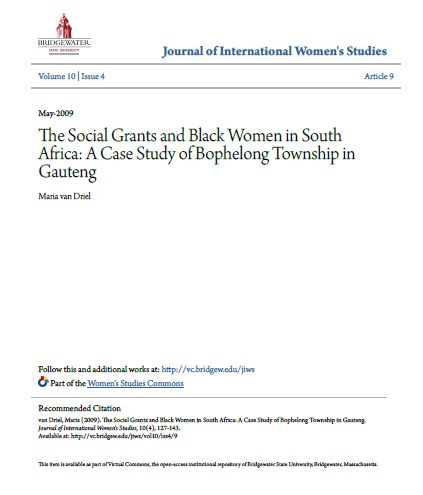The Social Grants and Black Women in South Africa
A Case Study of Bophelong Township in Gauteng

In post-Apartheid South Africa, 12.4 million people receive a social grant. This paper discusses the significance of the grants, and black women’s role through the prism of the grants. The paper is based on a case study in Bophelong Township near Johannesburg. The methodology draws on primary and secondary sources, a small socio economic survey, and indicative interviews with black women grant recipients, and the relevant literature. The principle of ‘triangulation’ is used to validate research findings. For a substantial number of families, especially single women with children, the grant is their sole income. Black women provide the necessary (unpaid) labour and care for children on a ‘hand to mouth existence’, but the grant does not assist recipients to break the cycle of poverty. The patterns of social reproduction in post-apartheid South Africa reinforces patterns of patriarchy inherited from apartheid, and reinforces the subordinated position of women in society. The role of women as carers hampers black women’s mobility to seek work and/or educational opportunities. Despite far-reaching Constitutional rights, the state, through the nature of the social grants, inadvertently reinforces the subordinate and unequal position of black women, structurally responsible for the caring for the young and the aged. This is indicative of neoliberal accumulation and social reproduction in post-apartheid SA.



Comments